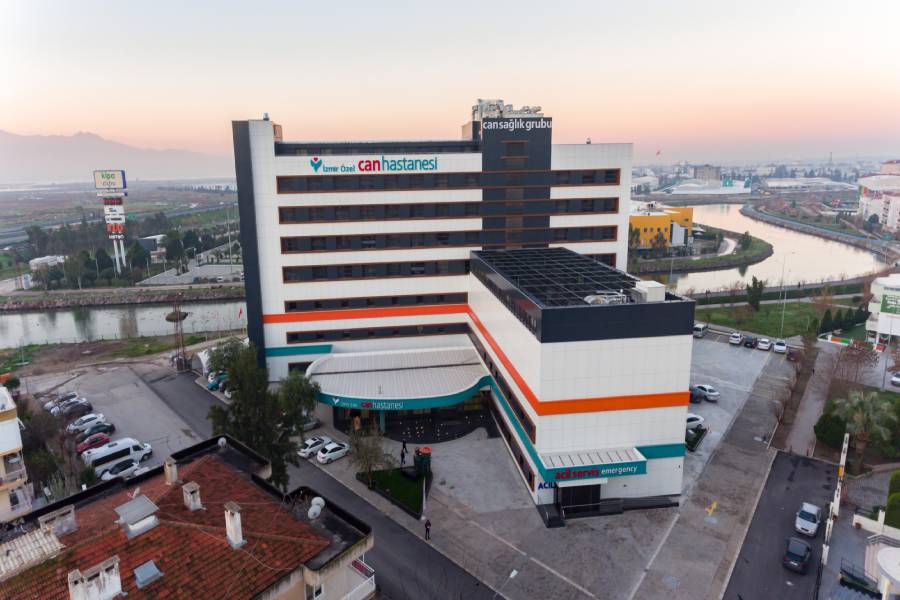Common Concerns About Genital Plastic Surgery
Categorised in: HEALTH GUIDE
Published Date:

Genital plastic surgery, a burgeoning field within the realm of cosmetic enhancements, has witnessed a notable surge in popularity. Procedures such as labiaplasty, vaginoplasty, and penis enlargement are increasingly being discussed and sought after. This heightened interest, while indicative of a growing demand, also brings forth a myriad of concerns for those contemplating these surgeries.
At the forefront of these concerns lies the issue of safety. Individuals seeking these intimate procedures are naturally apprehensive about the associated risks. They seek assurance that these surgeries are conducted by proficient surgeons in facilities that meet stringent accreditation standards. The recovery process and the requisite downtime post-surgery are also critical considerations.
Financial implications, including the cost of these specialised surgeries and the extent of insurance coverage, are additional concerns. Many are uncertain whether their health insurance will cover the expenses, necessitating out-of-pocket payments. The long-term efficacy and outcomes of procedures like penis enlargement and labiaplasty are also subject to scrutiny.
Addressing these prevalent concerns is imperative for those considering genital plastic surgery. Accurate information and a thorough understanding of the procedures, risks, and anticipated outcomes are essential. Such knowledge empowers individuals to make informed decisions regarding the suitability of these intimate surgeries for their needs.
Understanding Genital Plastic Surgery
Genital plastic surgery encompasses a spectrum of procedures aimed at modifying the appearance and functionality of the genitalia. This field is witnessing a surge in popularity, attracting both women and men who aspire to refine their intimate aesthetics or address functional issues.
Among women, vaginal rejuvenation stands out as a prevalent procedure, endeavouring to tighten and reshape the vaginal canal. This is often necessitated by childbirth or the natural effects of ageing. Clitoral hood reduction is another procedure, which entails the removal of excess skin around the clitoris to enhance sensitivity and aesthetic appeal. Hymenoplasty, or hymen reconstruction, is sought by some for cultural, religious, or personal reasons.
In the realm of male genital surgery, though less common, procedures such as penile enlargement, circumcision, and testicular implants are available. These surgeries may be undertaken to bolster confidence, rectify congenital anomalies, or address sexual performance-related concerns.
It is imperative for individuals contemplating genital plastic surgery to harbour realistic expectations and conduct exhaustive research into the risks and benefits. Engaging with a qualified and experienced plastic surgeon, who specialises in these procedures, is vital. This ensures the attainment of the most favourable outcomes and patient satisfaction.
Safety and Risks Associated with Genital Plastic Surgery
Genital plastic surgery, while potentially beneficial, carries inherent risks and complications. These include infection, scarring, and alterations in sensation. It is imperative to engage in a detailed discussion with your surgeon regarding these risks prior to proceeding with the surgery.
Infection, a common complication, can manifest at the incision site or deeper within the tissues. Adherence to post-operative care and following your surgeon’s instructions meticulously can help mitigate this risk. Scarring, another possible complication, varies based on skin type, the procedure’s specifics, and post-operative adherence.
Alterations in sensation, whether heightened or diminished, are also possible outcomes. These changes can be transient or permanent, influenced by the procedure’s nature and individual factors. It is critical to discuss these possibilities with your surgeon, understanding their implications for sexual function and satisfaction.
Anaesthesia-related risks must also be considered. These include allergic reactions, respiratory issues, and, in rare instances, life-threatening complications. Your surgeon and anaesthesiologist will meticulously review your medical history, discussing specific anaesthesia-related risks prior to the procedure.
Opting for a qualified, experienced surgeon specialising in genital plastic surgery is vital to minimise risks and achieve optimal results. It is essential to pose questions, voice concerns, and gain a thorough understanding of the risks and complications involved before embarking on genital plastic surgery.
Choosing a Qualified Surgeon for Genital Plastic Surgery
In the realm of genital plastic surgery, the selection of a proficient and experienced surgeon is of utmost importance. It is imperative to seek out a board-certified plastic surgeon, whose expertise lies in genital procedures. Such certification affirms the surgeon’s rigorous training and commitment to maintaining the highest standards of patient care.
It is essential to investigate the surgeon’s experience and specialisation in the procedure you are contemplating. A surgeon with a proven track record in genital plastic surgery possesses the necessary skills and expertise to deliver superior outcomes. Requesting to view before and after photos of their previous patients will provide a tangible assessment of their capabilities.
Perusing patient reviews offers invaluable insights into a surgeon’s interpersonal skills, communication abilities, and patient satisfaction levels. Seek testimonials on the surgeon’s website or through independent review platforms to gain a balanced perspective.
During your consultation, pose inquiries regarding the surgeon’s approach to the procedure, the likelihood of complications, and the anticipated recovery period. A qualified surgeon will engage in open dialogue, addressing any apprehensions you may harbour. It is vital to trust your instincts and select a surgeon with whom you feel at ease and confident.
Recovery and Downtime After Genital Plastic Surgery
Post-surgical recovery necessitates a period of rest and recuperation. The importance of postoperative care cannot be overstated, as it plays a critical role in mitigating complications and facilitating the healing process. Your surgeon will meticulously outline the necessary steps for the care of the surgical site, the management of pain, and the reduction of swelling and bruising.
The initial phase of pain management typically involves the prescription of pharmaceuticals. As the discomfort wanes, the use of over-the-counter analgesics may be advised. The application of ice packs or cold compresses can significantly aid in the diminution of swelling and bruising. It is imperative to abstain from strenuous activities and adhere strictly to the surgeon’s directives regarding the resumption of normal activities.
The duration of work absence post-surgery varies, typically ranging from 1-2 weeks, contingent upon the complexity of the procedure. The resolution of swelling and bruising generally occurs within a few weeks. Complete restoration of health may take several months, with scheduled follow-up appointments to monitor your progress being a cornerstone of your care. Adherence to postoperative instructions and allowing your body sufficient time to heal are essential for a seamless recovery following genital plastic surgery.
Psychological Impact of Genital Plastic Surgery
Genital plastic surgery profoundly influences an individual’s psychological state. Many opt for these procedures, aiming to enhance their body image and self-esteem. The personal nature of altering intimate anatomy is driven by a desire for increased confidence and comfort in one’s own skin.
While genital plastic surgery can yield positive psychological outcomes, it is imperative to maintain realistic expectations regarding the results. Understanding that these surgeries do not resolve all body image or relationship issues is critical. Counselling before and after surgery is essential to navigate the emotional aspects of the decision, ensuring a healthy perspective on the process.
For some, genital plastic surgery enhances sexual confidence. Greater comfort with one’s appearance can lead to increased self-assurance in intimate settings. Yet, it is vital to acknowledge that physical changes alone may not address deeper psychological or relationship concerns. Open communication with partners and a commitment to emotional intimacy are fundamental for a fulfilling sexual life.
The psychological impact of genital plastic surgery is highly variable. While many report increased self-esteem and body satisfaction post-procedure, others may face challenges with adjustment or regret. It is essential for those considering these surgeries to conduct thorough research, select a qualified surgeon, and prioritise their emotional well-being throughout the journey.
Cost and Insurance Coverage for Genital Plastic Surgery
The financial implications of genital plastic surgery are multifaceted, influenced by the intricacies of the procedure, the surgeon’s expertise, and the geographical location of the clinic. In the United Kingdom, the cost spectrum for labiaplasty spans from £2,000 to £4,000, whereas vaginoplasty may incur expenses ranging from £4,000 to £6,000. It is imperative to engage in a detailed discussion with the surgeon regarding the total financial commitment, encompassing any supplementary charges for anaesthesia or the use of facilities.
For individuals facing financial constraints, various financing alternatives are available. Many clinics offer structured payment plans or collaborate with specialised financing entities focused on medical procedures. Prospective patients are advised to scrutinise the terms and interest rates of any proposed financing arrangement meticulously before finalising their decision.
Typically, medical insurance does not extend coverage to cosmetic genital plastic surgery, categorising these procedures as elective and non-essential. Yet, there exist exceptions where surgery is deemed necessary to address functional impairments or congenital anomalies. It is advisable to consult with your insurance provider to determine the specifics of their coverage policies.
The National Health Service (NHS) generally does not fund genital plastic surgery unless there is a compelling medical rationale, such as severe discomfort or pain that significantly impairs daily functioning. If you harbour the belief that you might qualify for NHS funding, it is essential to consult with your General Practitioner (GP). They will evaluate your condition and, if deemed necessary, facilitate a referral. It is important to note that NHS waiting times for non-emergency procedures can be protracted.
Alternatives to Genital Plastic Surgery
For those contemplating genital plastic surgery, it is imperative to consider non-surgical alternatives. Pelvic floor exercises, commonly referred to as Kegel exercises, are instrumental in fortifying the muscles that underpin the pelvic organs. This can significantly enhance urinary continence and sexual performance. These exercises, which can be performed at home, are devoid of risks and do not necessitate downtime.
Laser treatments represent another non-invasive avenue for addressing certain genital concerns. By harnessing laser energy to stimulate collagen production, these treatments can enhance skin appearance. Though they may necessitate multiple sessions, laser treatments generally entail minimal downtime and pose fewer risks compared to surgical interventions.
Occasionally, the impulse towards genital plastic surgery is rooted in psychological or emotional distress, as opposed to physical issues. Engaging in counselling with a proficient therapist can facilitate the exploration of body image concerns, sexual anxieties, or historical traumas. Such interventions may be instrumental in mitigating the urge for surgical intervention. Lifestyle modifications, such as maintaining a healthy weight, adhering to good hygiene practices, and selecting comfortable attire, can also serve to alleviate genital discomfort or self-consciousness without the need for surgical procedures.
The choice between pursuing genital plastic surgery or opting for an alternative treatment is a deeply personal one. It should be made after thorough consultation with a qualified healthcare professional. By examining all available options and comprehending the attendant risks and benefits, individuals can make an informed decision that resonates with their unique circumstances and aspirations.
Related Posts

Why British Citizens Choose Turkey for Health Services?
British citizens are increasingly opting for Turkey when seeking medical treatments due to a combination of superior healthcare services, affordability, […]

Psychological Effects of Genital Aesthetics on Body Image
In a society increasingly focused on physical perfection, the realm of genital aesthetics has surfaced as an area of both […]

In which cases is labiaplasty necessary?
Labiaplasty, a procedure that has recently garnered significant attention, involves the surgical reduction of the labia minora. This operation, also […]

Healthy Recovery Process After Genital Aesthetic Surgery
Day Things To Do Things to Avoid 1-7 Days – Bed rest – Using medications recommended by the doctor – […]

When can i eat ice cream after gastric sleeve?
The allure of sweet treats post-gastric sleeve surgery is a common query. It is imperative to exercise patience as your […]